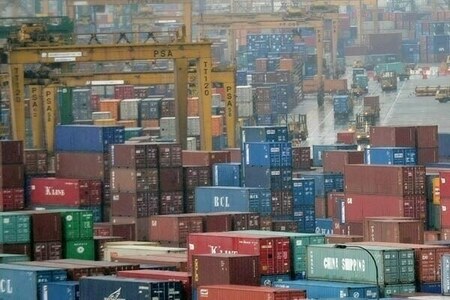AI-Powered Customs Clearance System Launched
In a groundbreaking development poised to transform trade and taxation, Prime Minister Shehbaz Sharif recently introduced the nation’s first AI-driven Customs Clearance and Risk Management System (RMS).
During a prominent meeting focused on Federal Board of Revenue (FBR) improvements, officials highlighted that the innovative system utilizes AI and automated bots to evaluate the value and attributes of goods during import and export processes, marking a significant advancement for Pakistan’s commerce sector.
FBR authorities informed the Prime Minister that this initiative represents a major advancement, effectively transitioning Pakistan’s customs procedures into the digital era.
Early assessments of the AI-enabled RMS have yielded impressive results, with the system demonstrating a 92% enhancement in overall efficiency. Moreover, the number of goods declarations targeted for tax collection has increased by 83%.
Clearance via the “green channel,” designed for expedited processing of low-risk shipments, has seen a 2.5-fold increase, offering considerable time savings for businesses.
According to the FBR, the system’s core is built upon sophisticated machine learning algorithms that continuously learn by examining the movement of goods in real-time, greatly diminishing the requirement for manual involvement and related inefficiencies.
Prime Minister Sharif stated that this reform is a key priority for the government to “automate the tax system, enhancing its transparency and effectiveness.”
He stressed that the new technology-driven framework will streamline business operations in Pakistan and provide essential relief to taxpayers affected by bureaucratic processes.
“Reduced human intervention translates to less corruption, quicker clearances, and increased government revenue,” he commented, urging authorities to ensure the system’s integration and long-term viability.
Sharif also commended the FBR team for their dedication in developing the system, underscoring the importance of Pakistan keeping pace with global standards to attract investment and stimulate economic expansion.
The meeting also showcased another significant achievement: a video analytics tool aimed at improving tax collection within Pakistan’s manufacturing sector. This technology is intended to automate tax assessments with transparency and efficiency, minimizing the potential for human errors or manipulation.
Having been tested with a reported 98% precision rate, the system is anticipated to significantly increase government income and simplify compliance for businesses, thus promoting Pakistan’s financial stability.
Finance Minister Muhammad Aurangzeb, Information Minister Attaullah Tarar, FBR Chairman Rashid Mehmood Langrial, and various other senior officials attended the session, collectively affirming their commitment to these transformative endeavors.



Comments (0)
No comments yet. Be the first to comment!
Leave a Comment